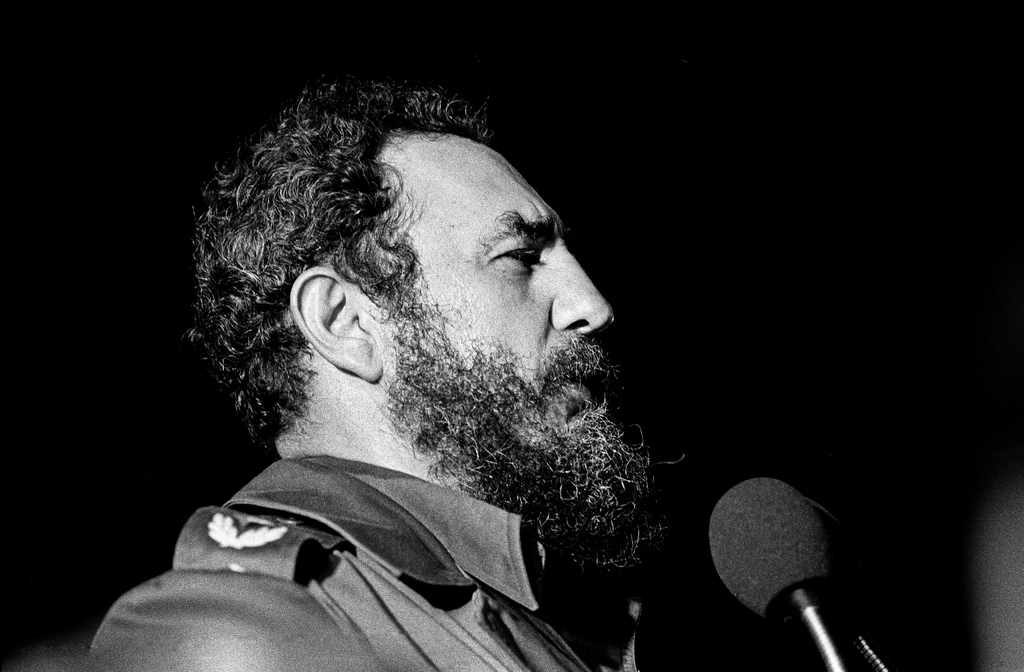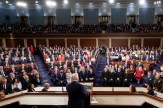Fidel Castro’s death, his legacy, and what is next for US-Cuban relations

Fidel Castro, the Cuban revolutionary and controversial global figure who defied the United States for decades, died Friday at age 90.
“Castro is one of the towering figures of the Modern Era,” said José Buscaglia, professor and chair of Northeastern’s Department of Cultures, Societies and Global Studies. “Like a Cuban Garibaldi or a tropical Stalin he was the consummate example, in the television age, of the man of action whose heroic stature and messianic promise guided the destinies of a small island nation. Under his leadership Cuba stood up to the most formidable military power in history. As such he was, together with Ernesto “Che” Guevara, the embodiment of anti-colonial struggle during the second half of the 20th century.”
Buscaglia has studied the Caribbean and Latin America extensively throughout his career and was a pioneer in study abroad programs by American institutions to Cuba, where he was the first professor from a U.S. university since the revolution of 1959 to teach a regularly scheduled yearly seminar at the University of Havana.
Sadly, for the country he has now left orphaned, the continued rule of the military at whatever cost may be his greatest legacy.
—José Buscaglia
Castro’s rule
To some, Castro was a revolutionary hero. To others, he was a ruthless dictator. In 1959 Castro led an armed revolt to overthrow dictator Fulgencio Batista. In 1961 he overcame the United States’ attempts to remove him from power with the failed invasion at the Bay of Pigs. The following year, the Cuban Missile Crisis nearly led to nuclear war.
Amid health problems Castro—who embraced Soviet communism and whose commitment to socialism was longstanding—ceded power to his brother, Raúl, in 2006 and resigned as president in 2008. As The New York Times noted, Castro held power longer than any other living national leader except Queen Elizabeth II.
“Fidel Castro left this world without renouncing utopia at whatever the price. He will be mourned but he will not be missed,” Buscaglia said. Meanwhile, he added, Castro’s passing “leaves behind a country in ruins.” Under Castro’s rule, he said, generations have been asked to sacrifice in the name of ideas, and most of the young dream of fleeing to the United States.
“Fidel Castro’s death makes it easy to ponder when and how democracy will be restored in Cuba,” he said. “Yet, the history of the country since colonial times is one of continued military rule punctuated by brief and frail moments of civilian rule during the first half of the 20th century. The Castro brothers were not the first dictators of Cuba and they may not be the last.”
Normalizing relations
In December 2014, President Barack Obama announced the United States would begin to normalize relations with Cuba and ease restrictions on the country. Earlier this year he became the first sitting U.S. president in more than 90 years to visit Cuba. These developments paved the way for Northeastern to secure agreements earlier this year with institutions in Cuba officially establishing partnerships that will lead to a range of new academic opportunities—from global co-ops to research—for Northeastern students and faculty.
Overall an effort to resolve our differences and work together is long overdue. Fidel Castro’s day is past but Obama’s initiatives could not have advanced if Castro did not accept and support them.
—William Crotty, on the U.S. efforts to normalize relations with Cuba
America’s move to begin normalizing relations prompted William Crotty, professor emeritus of political science, to visit Cuba for eights days in February 2015. He found a Cuba that is “stuck in time,” and noted that Cuba is distrustful of the U.S. government but welcoming to American visitors. He saw an economy “in shambles,” but pointed to Cuba’s exceptional advancements in medicine, its free health care, and its high literacy rate. There is opportunity for American investment there, he said. “Cuba emphasizes culture with music, dance, and painting as priorities,” he said, “and they expect to keep all this while weathering what will amount to an economic invasion from American corporations. The mix of socialism and capitalism will be difficult.”
Crotty called Castro’s passing “a seismic event.”
He said when Castro overthrew Batista, many professionals and others fled too and a large majority landed in Miami, where he said as a group they have done well and have been heavily involved in American politics. “For decades they were considered the key to carrying Florida’s rich number of electoral votes,” he said. “In return they required an unrelentingly tough stand on Cuba that, given how presidential politics operates, left little room for presidents to be creative.”
“Cubans honor Fidel Castro as the founder and spirit of their revolution,” Crotty said. “From these shores, the view is mixed at best. The fact that the U.S. and Soviets could have engaged in a nuclear World War III over the Cuban missiles is still alarming. Overall an effort to resolve our differences and work together is long overdue. Fidel Castro’s day is past but Obama’s initiatives could not have advanced if Castro did not accept and support them.”
Added Buscaglia: “It is ironic to contemplate that the recent trend toward normalization of Cuba-U.S. relations will now be framed by a rapidly deteriorating relationship between the U.S. and Latin America. In this sense, Fidel’s image will continue to inspire resistance in the island and throughout the continent. Sadly, for the country he has now left orphaned, the continued rule of the military at whatever cost may be his greatest legacy.”





